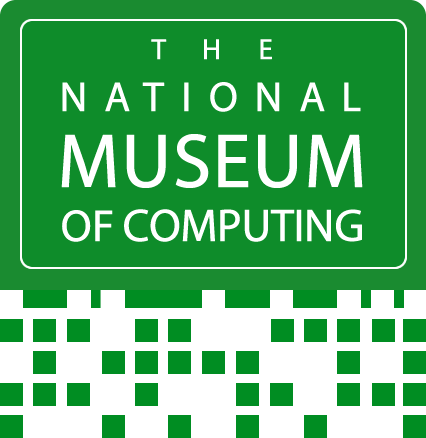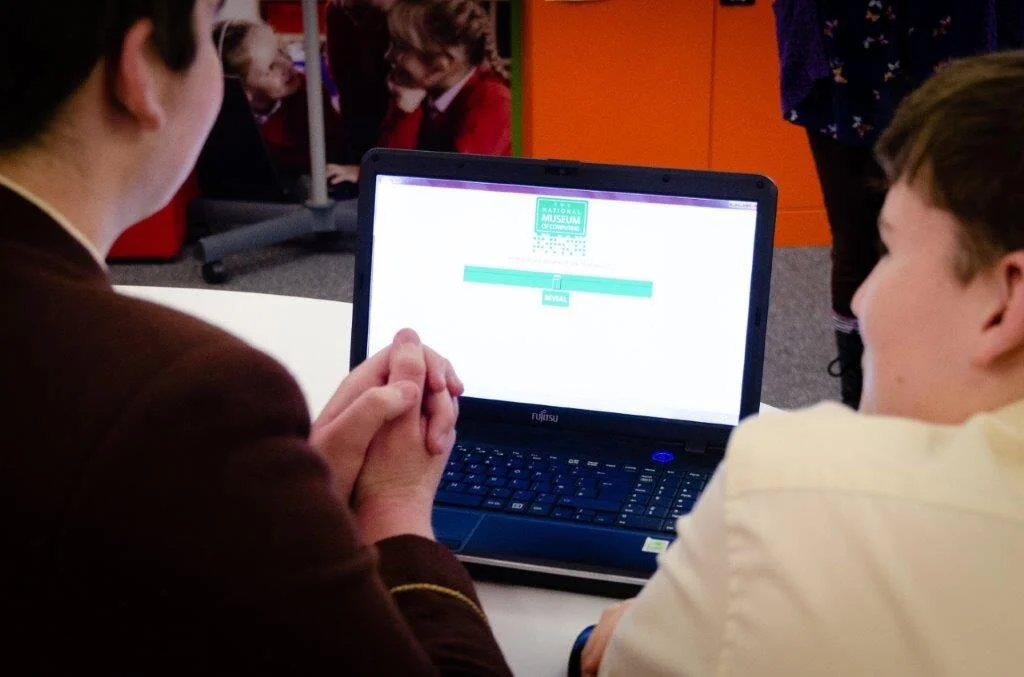TNMOC’s Turing Test just became tougher
/Students enjoy interactive insights into artificial intelligence
A gifted student has created a brand-new version of the Turing Test that has entertained and intrigued educational groups on the Learning Programme at The National Museum of Computing for many years. The Turing Test aims to challenge its users if they can tell if they are talking to a machine or a human.
As part of his A-level coursework in computer science, Niccolo Mattarei, of West Bridgford School in Nottingham, has created a Turing Test that enables students to play against each other. His program links some computers to students, and some to machines that provide automatic answers. Initially, the students cannot tell what link they are using. Can they tell a fellow student from a machine?
Niccolo Mattarei explained, “I had read about the Turing Test as an abstract concept but had never considered how it might be implemented until the opportunity with TNMOC arose. It needed coding beyond that required for A-Levels, so it was immensely satisfying to set it up and see it working on the TNMOC’s classroom computers. I have written it in a way that it can be modified and improved, so with luck, it will be usable for years to come.”
Toby Eyre, head of enterprise at the West Bridgford School, said, “To prepare our students for degree courses and employment, we encourage our A-level computer science students to be ambitious and to tackle real-world problems with external clients for their coursework projects. The sophistication of Niccolo’s project is far above the requirements of computer science A-level, so it’s little wonder that he was awarded the top grade in this year’s results. It is very rewarding to teach and support students of such calibre.”
Anne-Marie Sandos, head of learning at TNMOC, said, “Niccolo’s version of the Turing Test is exceptionally smart. It challenges students to think about the nature of their interactions and to compare human intelligence with artificial intelligence. They can then learn to develop their own chatbots, which are now commonly encountered in everyday life, often online or by telephone. Anyone with the ability to develop a chatbot is in great demand by employers.
“Our visiting students leave the museum with rich insights of the development of AI – having experienced AI applications and having seen in action the best-known work of the leading pioneer of AI: the Turing-Welchman Bombe that broke Second World War enemy ciphers.”
The highly popular Learning Programme at The National Museum of Computing provides educational groups from the age of 10 with unrivalled insights into the development of computing. See www.tnmoc.org/learning for details.
Notes To Editors
About the Turing Test
Created by Alan Turing, the Turing Test is regarded as a benchmark test of artificial intelligence. Turing proposed that a computer can be said to possess artificial intelligence if it can mimic human responses under specific conditions.
About The National Museum of Computing
Now fully open Tuesdays to Sundays, 10.30 am to 5.00 pm.
The National Museum of Computing, located on Bletchley Park in Block H, one of England’s ‘irreplaceable places’, is an independent charity housing the world's largest collection of functional historic computers, including reconstructions of the wartime code-breaking Colossus and the Bombe, and the WITCH, the world's oldest working digital computer. The Museum enables visitors to follow the development of computing from the ultra-secret pioneering efforts of the 1940s through the large systems and mainframes of the 1950s, 60s and 70s, and the rise of personal computing in the 1980s and beyond.
The Museum runs a highly successful Learning Programme for schools and colleges and promotes introductions to computer coding amongst young people to inspire the next generation of computer scientists and engineers.
Sponsors of the Museum have included Bletchley Park Science and Innovation Centre, Fujitsu, InsightSoftware.com, Paessler AG, Sophos, Issured, Lenovo, Bloomberg, Ocado Technology, Ceravision, CreateOnline, 4Links, Google UK, IBM, NPL, HP Labs and BCS.
For more information, see www.tnmoc.org and follow @tnmoc on Twitter and The National Museum of Computing on Facebook.
Media contact
Stephen Fleming, Palam Communications
01635 299116
s.fleming@palam.co.uk








